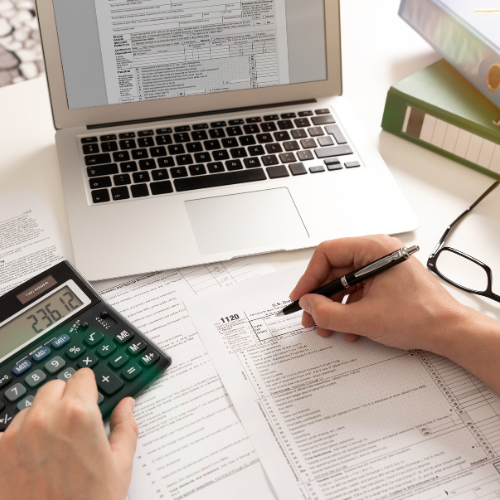
In this month’s newsletter, you’ll read about coronavirus and how to stay safe. In addition, you’ll read about preventing home burglaries when on vacation and driving safely with pets.
Download the full version of this Personal Insights Newsletter
LIFE
Coronavirus and How to Stay Safe
The World Health Organization (WHO) has designated the COVID-19 outbreak a global public health emergency. According to the most recent reports, over 76,700 people have been infected with the virus and another 2,249 have died. To ensure your health and well-being, it’s important to understand what coronaviruses are and how to protect yourself.
According to the CDC, coronaviruses are common in animal species. And while most don’t affect humans, the most recent strain, COVID-19, does and can be spread from person to person. Coronaviruses typically cause mild upper respiratory tract illnesses, and those affected exhibit cold-like symptoms (e.g., headache, cough, fever, sore throat and runny nose).
Some coronaviruses, like COVID-19, can be more severe, and individuals may experience lower-respiratory tract illnesses like bronchitis and pneumonia. For the elderly, infants and those with weakened immune systems, COVID-19 can be deadly.
While the most recent outbreak began in China, more than two dozen countries—including the United States—have confirmed cases of COVID-19. According to the CDC, individuals should take the following precautions to avoid spreading or contracting coronavirus:
- Avoid touching your eyes, nose or mouth with unwashed hands.
- Avoid contact with those who are sick.
- Wash your hands often with soap and water.
Individuals that develop symptoms of COVID-19 within 14 days of visiting China or other areas where the virus has been reported should call their health care provider before receiving medical treatment. This allows medical professionals to take the necessary precautions to prevent the spread of the virus. For more information and updates on COVID-19, visit the CDC’s website
HOME
Preventing Home Burglaries When on Vacation
As a homeowner, security is critical and can make all the difference when it comes to preventing costly and emotionally taxing burglaries. However, when preparing to leave for a vacation, it’s easy to overlook basic home safety precautions. To protect your residence while you’re away and enjoy a worry-free trip, keep in mind the following tips:
- Lock all windows and doors. Secure valuables in a safe deposit box.
- Arrange to have your lawn mowed or snow shoveled while you’re away. This makes it seem as though people are home and keeping up with daily chores.
- Have a neighbor keep an eye on your home throughout your trip.
- Avoid leaving your house key outside your home, even if you think it’s in a safe place.
- Leave a car parked in your driveway to make it seem as though someone is home.
- Set timers on inside lights. Install a motion-activated sensor on outdoor floodlights.
- Avoid posting photos of your trip on social media until after you return home. You don’t want to leave any clues for thieves that you are away.
- Stop the mail. Piles of uncollected letters and newspapers are a telltale sign you’re on vacation, which can attract burglars.
- Disconnect automatic garage doors. This prevents robbers from gaining entry to your home using universal garage door remotes.
Taking the proper precautions before you go on vacation can make all the difference when it comes to preventing theft.
AUTO
Driving Safely With Pets
There are a number of reasons why you may need to take your pet for a ride in your car. You could be going on vacation, taking the pet to the vet or simply going for a short ride to run errands. However, failing to take the proper precautions to secure pets during car rides can jeopardize the well-being of both animals and passengers alike. To ensure your pets are safe during car rides, keep in mind the following:
- Keep dogs and cats in carriers when possible. When pets are allowed to roam around a vehicle, they can distract drivers and potentially cause an accident. Carriers should have secure doors and latches. They should also be comfortable and well ventilated to ensure pets have a safe and stress-free ride.
- Avoid leaving pets alone in cars for any length of time. Temperatures inside a vehicle can rise quickly, which can put your pet’s health at risk.
- Keep your pet comfortable. For long trips, bring along their favorite toys and some small snacks. This can help reduce stress and make the ride more enjoyable for everyone.
- Remove any loose objects from the car, if possible. Following a crash, these objects can become dangerous projectiles.
Above all, it’s important to understand and follow any relevant laws related to driving with pets. Check with your local department of motor vehicles or veterinary office to learn more.

Lawsuit Prevention Strategies for Businesses
Businesses face lawsuits that can drain resources and harm reputations. Leaders should reduce risks and

IRS Releases Employee Benefit Plan Limits for 2025
Employee benefits often come with annual dollar limits that are adjusted for inflation each year,

Wrapping Up 2024: Our Top Blog Posts of the Year
As 2024 ends, we’re highlighting the year’s top blog posts on renewal strategies, construction risks,

